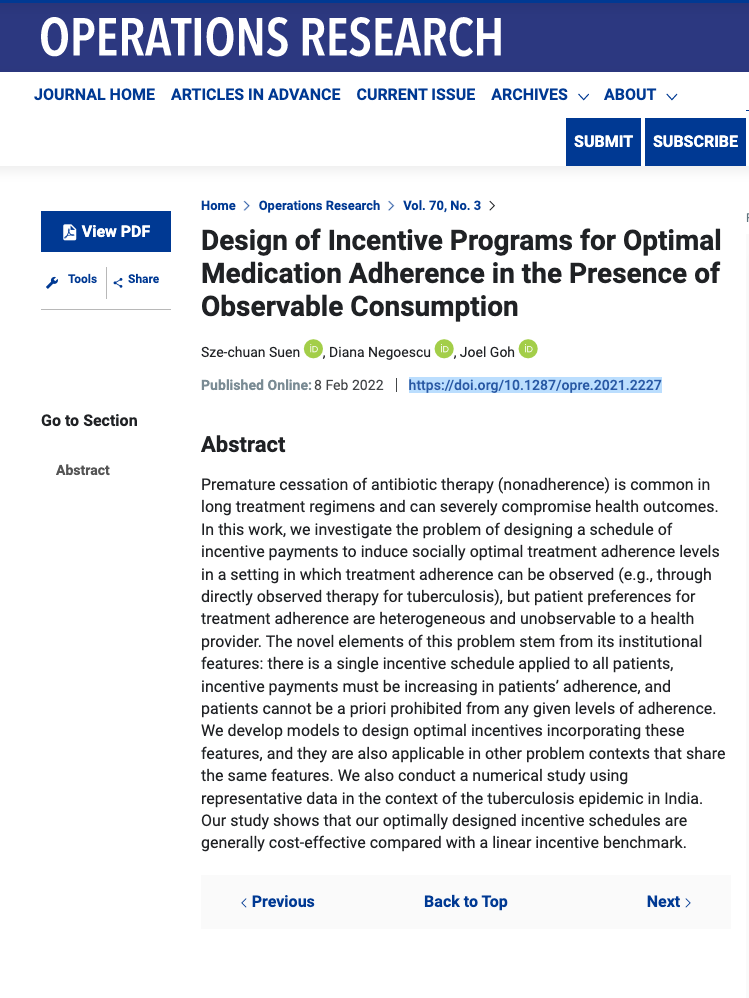Designing Incentives to Promote Treatment Adherence Premature cessation of antibiotic therapy is common and can severely compromise health outcomes, potentially leading to worsening health, disease transmission, and antibiotic resistance. In “Design of Incentive Programs for Optimal Medication Adherence in the Presence of Observable Consumption,” Sze-chuan Suen, Diana Negoescu, and Joel Goh investigate the problem of designing a schedule of incentive payments to induce socially optimal treatment adherence levels in settings in which treatment adherence can be observed but patient preferences for treatment adherence are heterogeneous and unobservable to a health provider. The novel elements of this problem stem from its institutional features: there is a single incentive schedule applied to all patients, incentive payments must be increasing in patients’ adherence, and patients cannot be a priori prohibited from any given levels of adherence. The authors develop models to design optimal incentives incorporating these features and conduct a numerical study of the tuberculosis epidemic in India.

